19 Exotic Pets That Are Completely Legal to Keep in Your Home
Owning an exotic pet is something that requires more responsibility than curiosity. It’s not for everyone, but for those with the patience and resources to care for these unique animals, it can be incredibly rewarding. These pets require understanding, detailed care, and a willingness to meet their specific needs. Let’s check out 15 exotic animals legally kept as pets and what makes them fascinating companions.
Anteaters
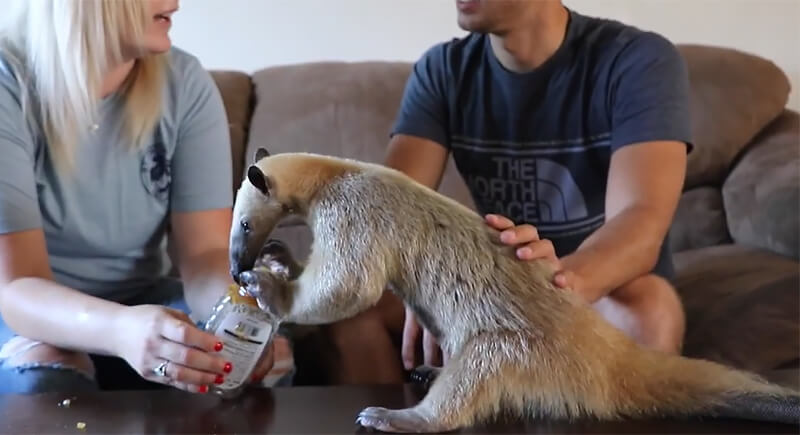
Credit: Youtube
If you’ve ever been fascinated by animals with an out-of-this-world appearance, anteaters might catch your eye. Their long snouts and sticky tongues, capable of extending up to two feet, are designed for a diet of ants and termites. Housing an anteater means providing an environment that mimics their natural habitat—spacious outdoor areas with climbing opportunities and a substrate for digging. They’re solitary animals and can become stressed in noisy or crowded environments.
Fennec Foxes
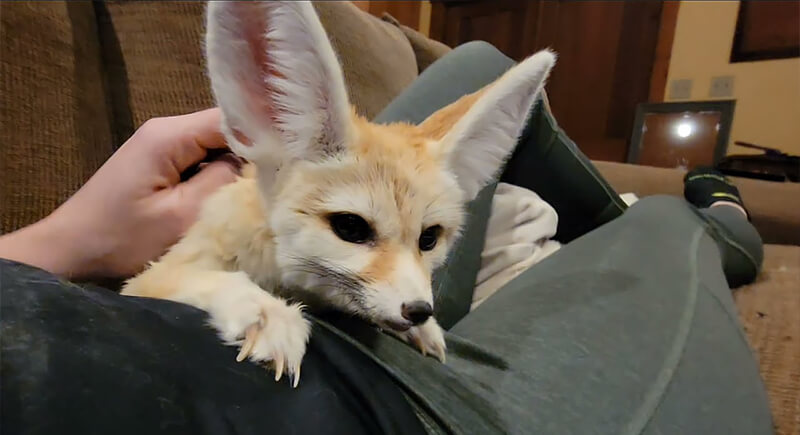
Credit: Youtube
Fennec foxes bring the energy of a playful puppy and the cunning of a fox all wrapped up in a pint-sized package. Their enormous ears, which help them dissipate heat in their desert habitat, also make them irresistibly cute. These nocturnal animals love to dig and climb, so a secure outdoor space or a dedicated indoor play area is a must. Plus, they can be vocal, especially at night, and need patient owners who appreciate their energy and intelligence.
Muntjac Deer
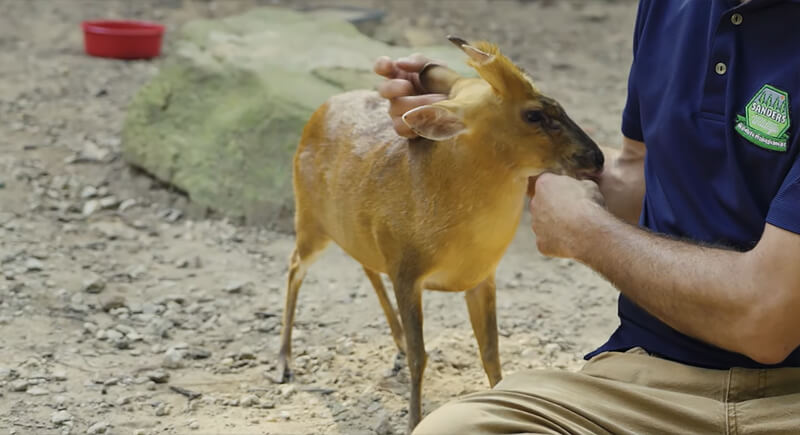
Credit: Youtube
A deer small enough to wander through your backyard without trampling everything in its path–that’s exactly what a Muntjac deer is like. These animals, often referred to as “barking deer” because of the sounds they make, are one of the few deer species kept as pets. They’re small, typically no larger than a medium-sized dog, and adapt well to secure outdoor enclosures with shaded areas.
Bennett’s Wallabies
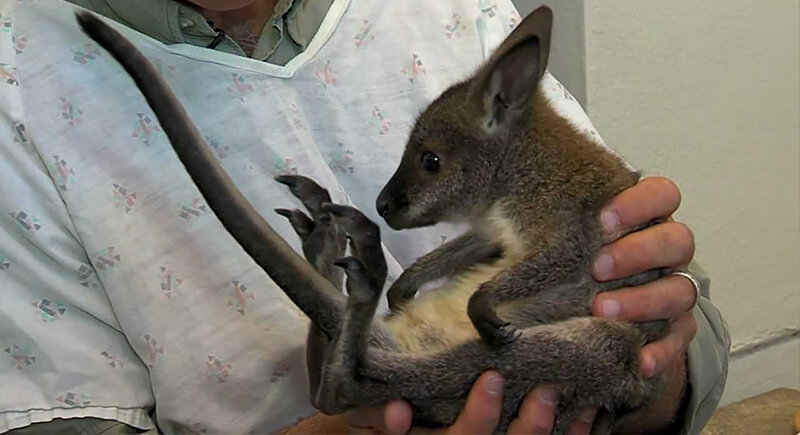
Credit: Youtube
Cousins to kangaroos, Bennett’s wallabies are exotic pets you won’t see every day. These marsupials love large, grassy spaces where they can hop freely. Wallabies are herbivores and thrive on a diet of fresh grass, hay, and specialized pellets. They form strong bonds with their owners but need a calm environment to feel secure.
Pet Tarantulas
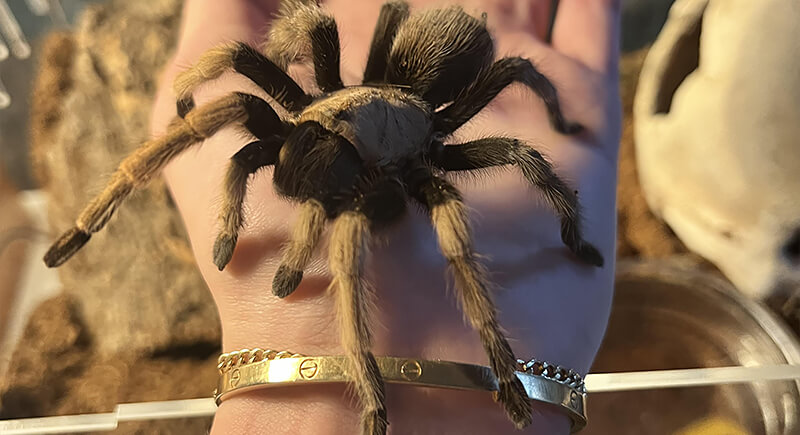
Credit: Reddit
Not everyone is ready to embrace the eight-legged wonder of a tarantula, but these arachnids are among the most low-maintenance exotic pets. They require a terrarium that mimics their native environment, with hiding spaces and controlled humidity levels. Most species eat live insects, such as crickets or roaches, which must be provided every week or so. Tarantulas rarely bite, but their urticating hairs can cause irritation, so they should be handled minimally and with care.
Kangaroos
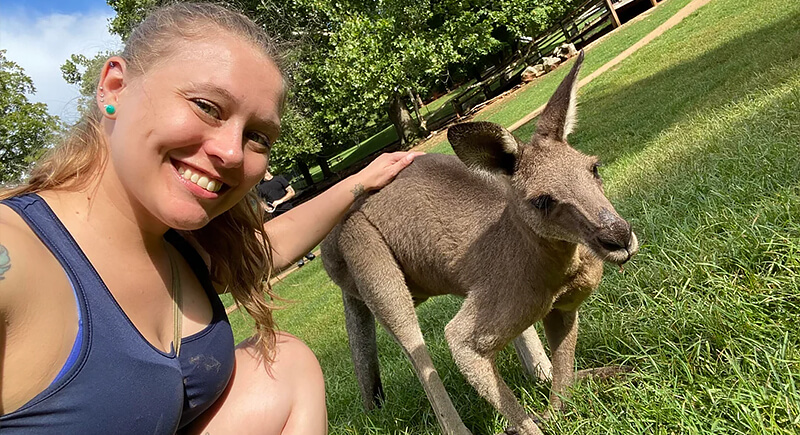
Credit: Reddit
If Bennett’s wallabies aren’t exotic enough, consider their larger relatives, kangaroos. These strong, energetic animals are not typical pets and are only legal to own in certain regions with permits. They require a vast outdoor space to hop and graze, as well as shelter from extreme weather. They are also herd animals and thrive in social groups, so they are best suited for owners who can provide companions of their kind.
Llamas
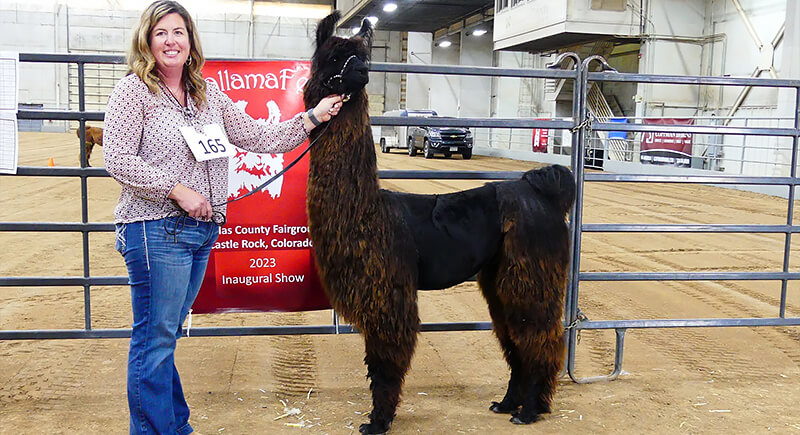
Credit: Facebook
Llamas are often valued for their gentle temperament and can be kept as companions or working animals. These gentle giants are often kept on farms, but they can also thrive in spacious backyards. They’re social animals that enjoy human interaction and require a diet of hay, grains, and freshwater. Plus, they’ll keep your yard looking neat while munching on grass.
Capybaras
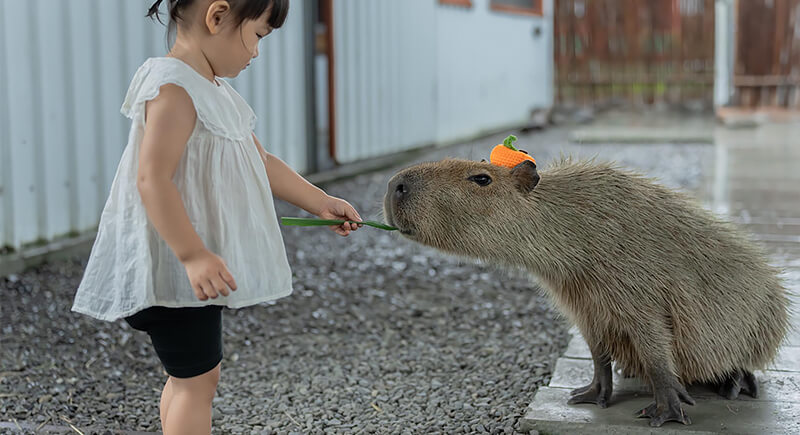
Credit: Reddit
As the world’s largest rodents, Capybaras are semi-aquatic animals that are happiest when they have a pond to lounge in and a buddy to share it with. They’re often called “giant guinea pigs,” but their personalities are far more complex. They’re gentle, approachable, and surprisingly expressive, but their care requires a lot of commitment, especially if you’re ready to install a pool just for them.
Porcupines
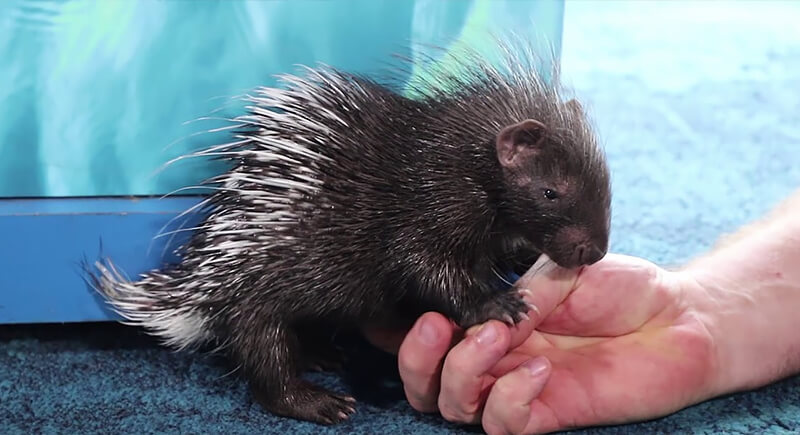
Credit: Youtube
With their sharp quills, porcupines might seem like unlikely pets, but they’re surprisingly docile when handled correctly. They require secure enclosures to prevent escapes and quill-related accidents. While they’re not cuddly, porcupines can be quite charming in their own way.
Boa Constrictors
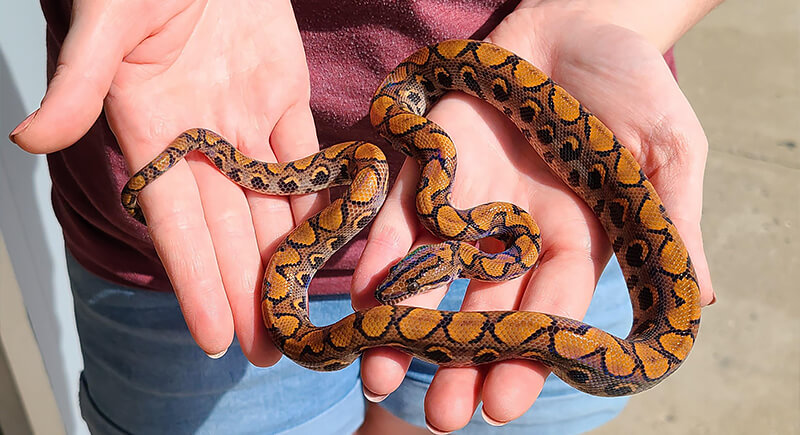
Credit: Reddit
Boa constrictors are perfect for reptile enthusiasts who appreciate the beauty of a powerful predator. These snakes require a spacious enclosure with carefully regulated heat and humidity. Their diet consists of appropriately sized prey, like rats or rabbits, which they eat only once every few weeks. Watching a boa constrictor is mesmerizing—they move with the kind of elegance that commands attention.
Spotted Genets
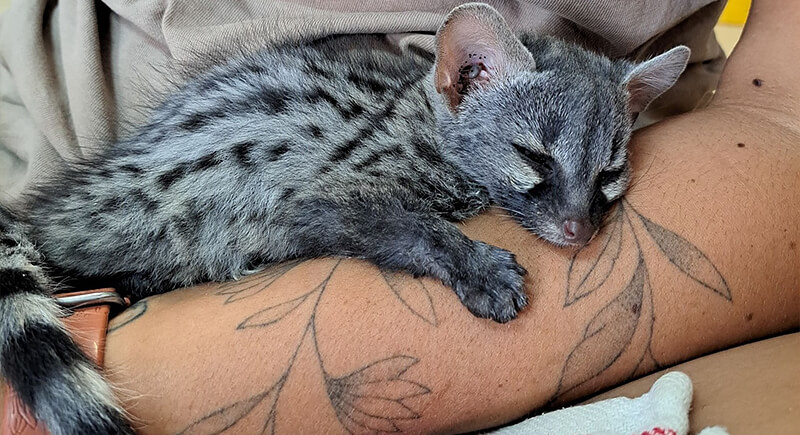
Credit: Facebook
Spotted genets resemble a mix between a cat and a ferret, with their slender bodies and long, ringed tails. These agile creatures are excellent climbers and require a multi-level enclosure to explore. Though they’re independent, genets can form bonds with owners who put in the work to earn their trust.
Two-Toed Sloths
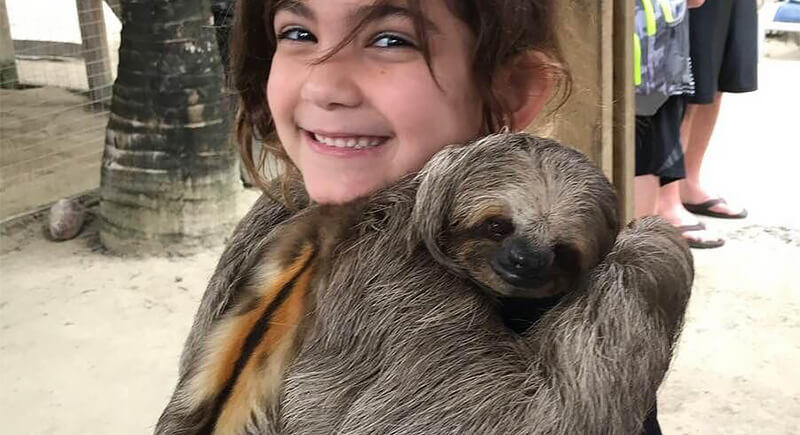
Credit: Reddit
If there’s one thing you can learn from the two-toed sloths, it’s how to take it slow. They spend most of their time lounging in trees and need a specially designed environment to replicate their rainforest habitat. Sloths are not for everyone, but for those willing to meet their unique needs, they offer a peaceful presence.
African Servals
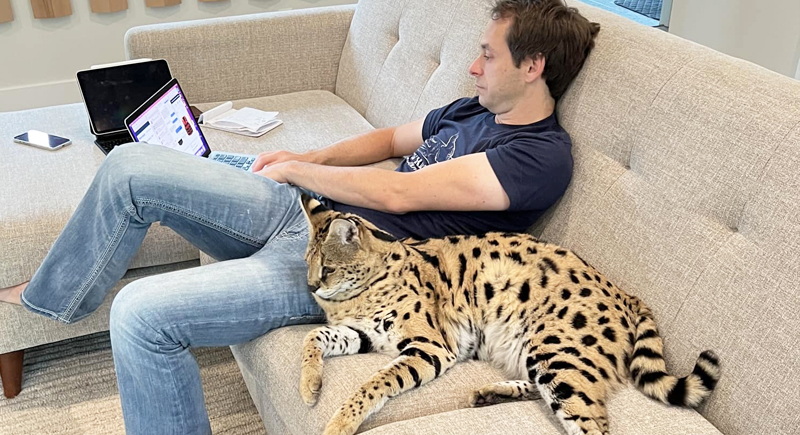
Credit: Facebook
Servals are medium-sized wild cats with long legs and a distinctive spotted coat. They are excellent hunters and can leap several feet in the air to catch prey, so they need a large, secure enclosure to roam. Servals are active and curious but remain wild animals, even in captivity. Owners should have prior experience with exotic cats.
Bushbabies
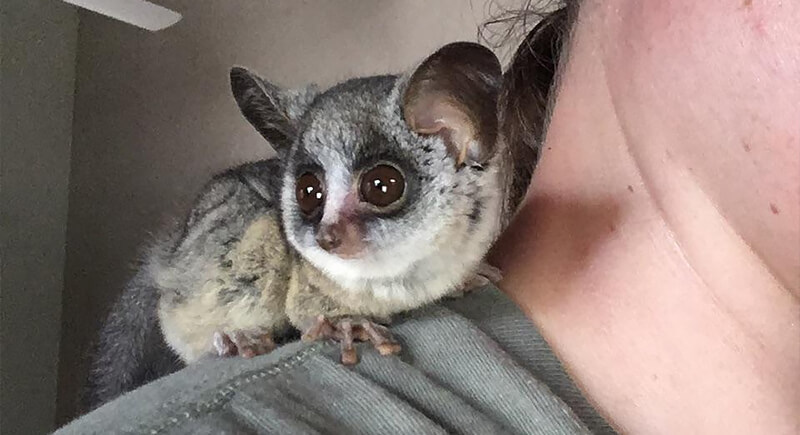
Credit: Reddit
Bushbabies, or galagos, are nocturnal primates with large, expressive eyes and remarkable agility. They love climbing and exploring, so their enclosure needs to resemble a vertical jungle gym. These animals are independent and require environments that encourage exploration and play.
Kinkajous
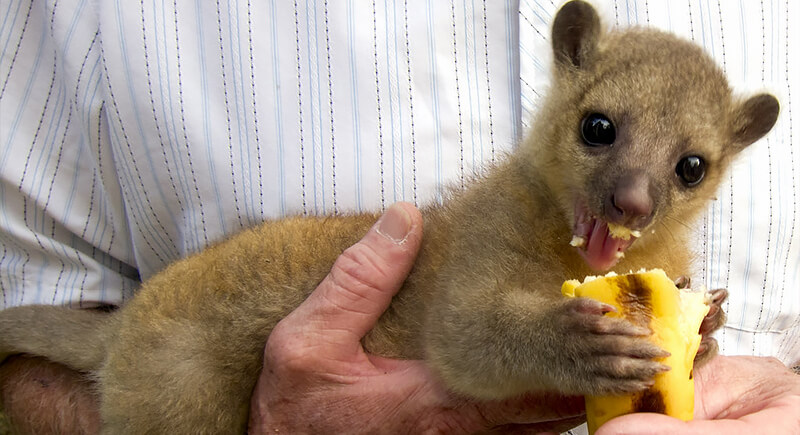
Credit: flickr
Kinkajous are playful, tree-dwelling mammals with a sweet tooth and a love for climbing. Their prehensile tails help them navigate their environment, and their diet of fruits, nectar, and honey keeps them energized. Kinkajous are curious and social, but their nocturnal habits mean they might be more active when you’re winding down.
Axolotls
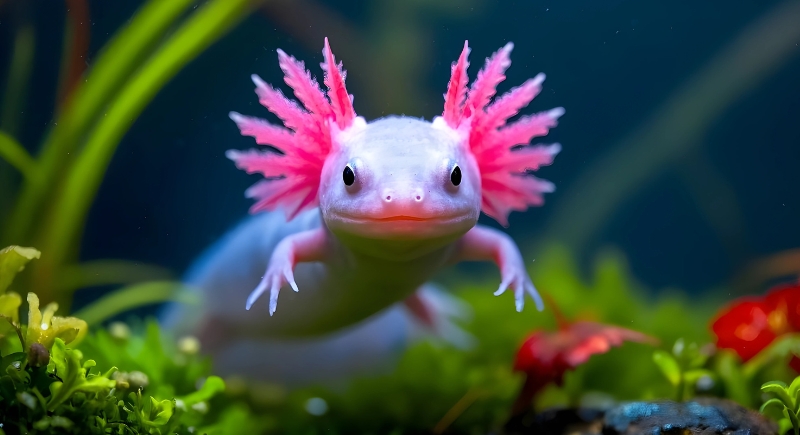
Credit: Canva
Axolotls might look like exotic creatures out of a sci-fi lab, but in many U.S. states, they’re legal to own as pets. Though not every state agrees, their feathery gills and permanent grin make them stand out as additions to home aquariums. Where allowed, axolotls are fully aquatic, low-key, and surprisingly easy to care for with the right setup.
Sugar Gliders
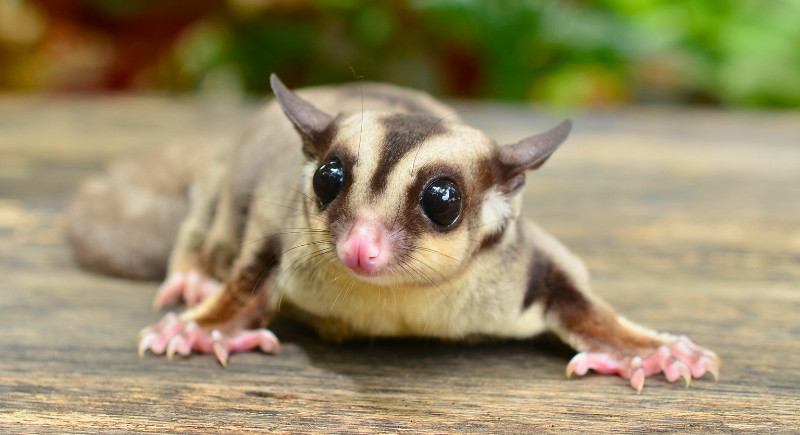
Credit: Getty Images
Sugar gliders bring high energy in a small package. With skin flaps that let them glide, and chirps that sound like squeaky toys, they’re anything but low-maintenance. They might be legal in some states, but not everywhere. California, Hawaii, Alaska, and New York City have strict bans. They bond closely with their owners and each other, which means solo life isn’t an option.
Iguanas
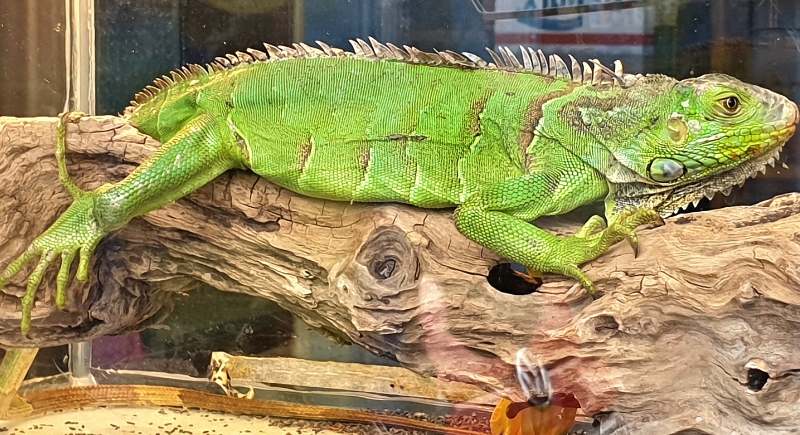
Credit: Wikimedia Commons
With their striking, prehistoric look and calm temperament, iguanas are among the most popular exotic pets. These green reptiles can reach lengths of up to six feet and require spacious enclosures with UVB lighting and sturdy branches. A diet rich in leafy greens, fruits, and vegetables helps keep them healthy and vibrant.
Coatimundis
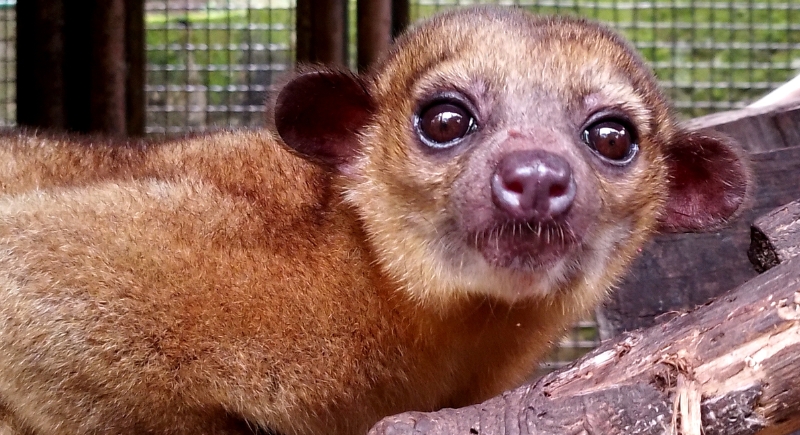
Credit: Wikimedia Commons
Coatimundis, close relatives of raccoons, are curious and lively pets that love to explore. Their intelligence makes them engaging but also demanding to care for. They need large spaces, enrichment, and early training. Regulations vary across states and countries, so it is essential to check permit requirements before adoption.